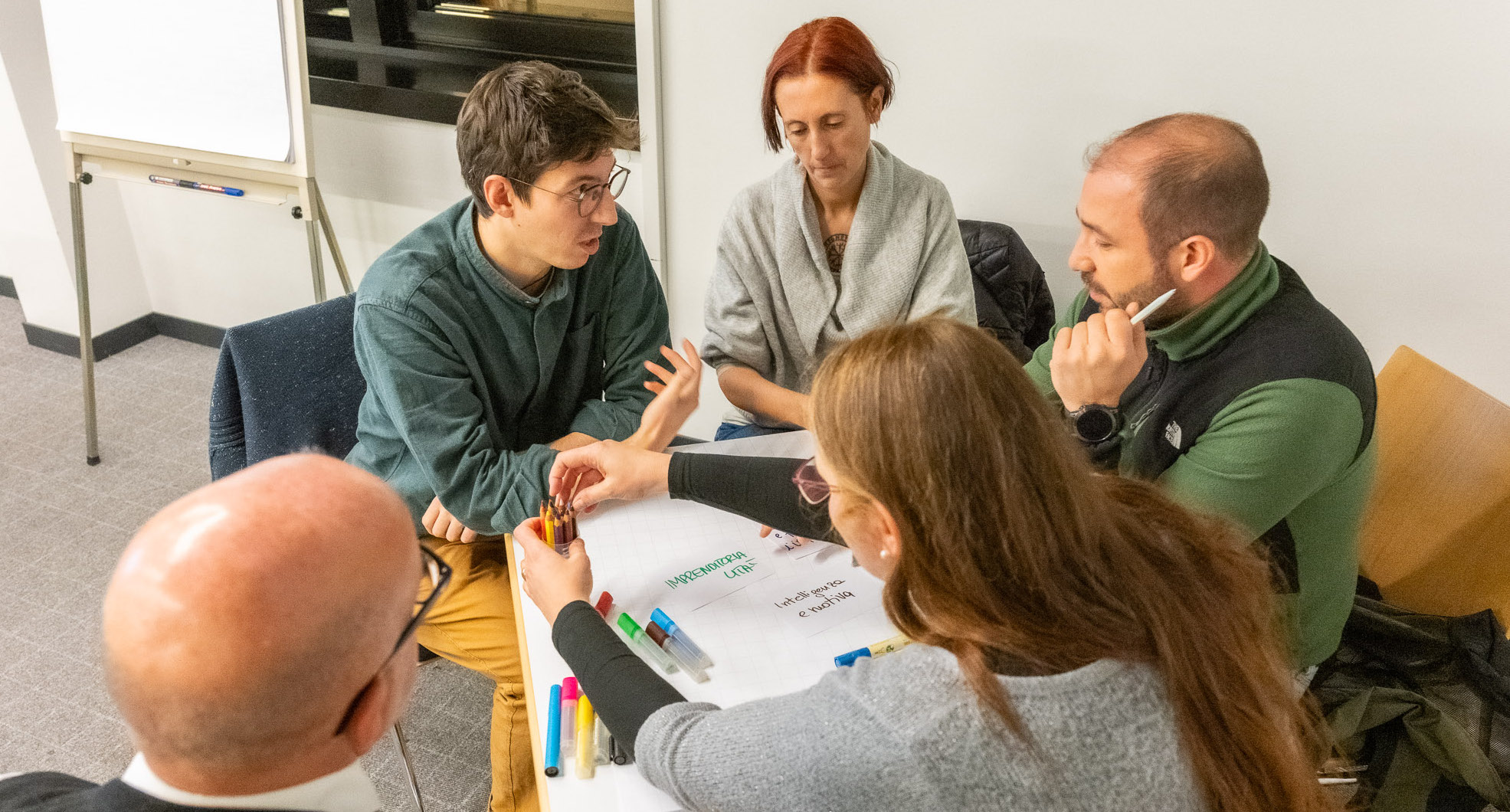The last Think Tank TRANSIT event of the year 2023 was the first opportunity for the TRANSIT community to reflect on the new focus topic “Future Skills”. The topic had been selected by the TRANSIT community in a broad survey as the focus for 2023/2024. The event took place on 5 December 2023 in Lugano, at the Swiss Federal University for Vocational Education and Training (SFUVET).
Introduction and icebreaker
Helen Buchs, Director of TRANSIT, introduced the idea behind the think tank and explained how TRANSIT aims to develop analyses and perspectives on the role of adult learning in society.
An icebreaker activity then allowed the group to warm up and get to know each other by asking the questions found on the cards of the TRANSIT card set ” Future Questions “.
To introduce the new topic, Simone Rizzi, responsible for the SVEB secretariat in the Italian-speaking part of Switzerland, gave a brief definition of ” Future Skills ” and highlighted some general issues related to the topic.
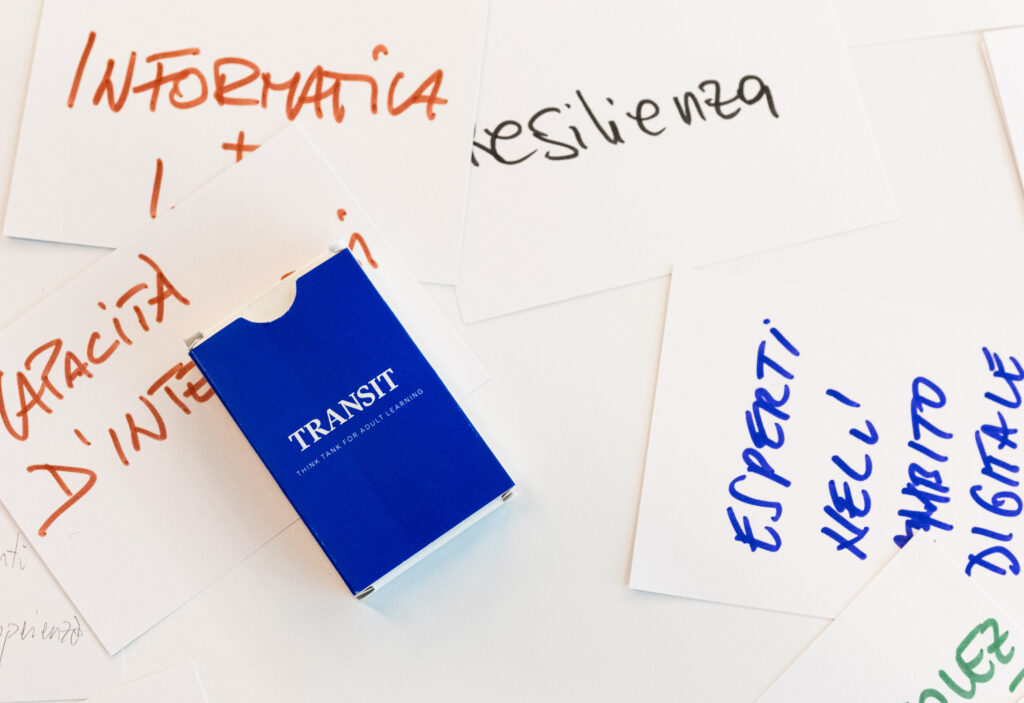
Brainstorming about Future Skills
After the introduction, the more than 20 participants plunged into a fast-paced brainstorming activity that allowed them to start collecting general ideas about the new focus topic. For this event, the 3 – 12 – 3 – minute brainstorming workshop method was chosen. As in a normal brainstorming activity, there was no right or wrong answer, no judgement, no criticism.
Part one: gathering ideas
In the first 3 minutes, participants were given 3 pieces of paper and were asked to write down the first 3 thoughts about Future Skills that came to their mind, one on each piece of paper. These could be concerns, challenges, opportunities or anything else.
The words that emerged from this first brainstorming moment can be grouped into five areas. The first major area touched upon was “soft skills training”, which seems to be a priority to successfully face the challenges of the future. These are, for example, emotional intelligence, negotiation, mindfulness, adaptability, resilience or entrepreneurial and self-management skills. The other four areas were “diversity management and integration”, also understood as cultural diversity, intergenerational diversity and the development of intercultural competences; “sustainability and environmental awareness”; “digitalisation”, with the management of ICT and artificial intelligence; and finally, “networking”, understood as the creation and maintenance of relationships between the various actors active in the sector by promoting cooperation and exchanges.
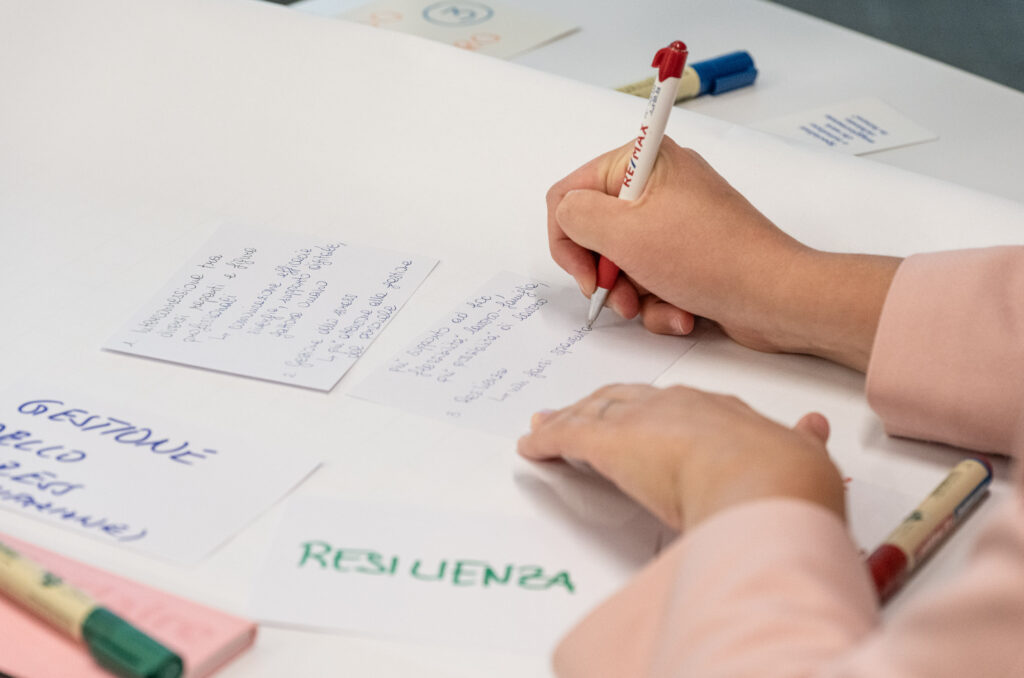
Part two: What issues will Future Skills respond to?
The second part was group work. To keep the momentum of the workshop, the available chairs were placed around five tables placed in different parts of the room. Each group received 3 of the papers written in the previous step and was given 12 minutes to prepare a 3-minute presentation answering the question “What issues will Future Skills respond to?”, ensuring to include the three contributions from the first part.
To broaden the discussion, two groups were asked to look at the question from the perspective of training providers, two from the perspective of the labour market and one from the perspective of learners. The groups had different tools to enhance their presentation, such as a flipchart, coloured pens, post-its, stock pictures, coloured paper, etc.
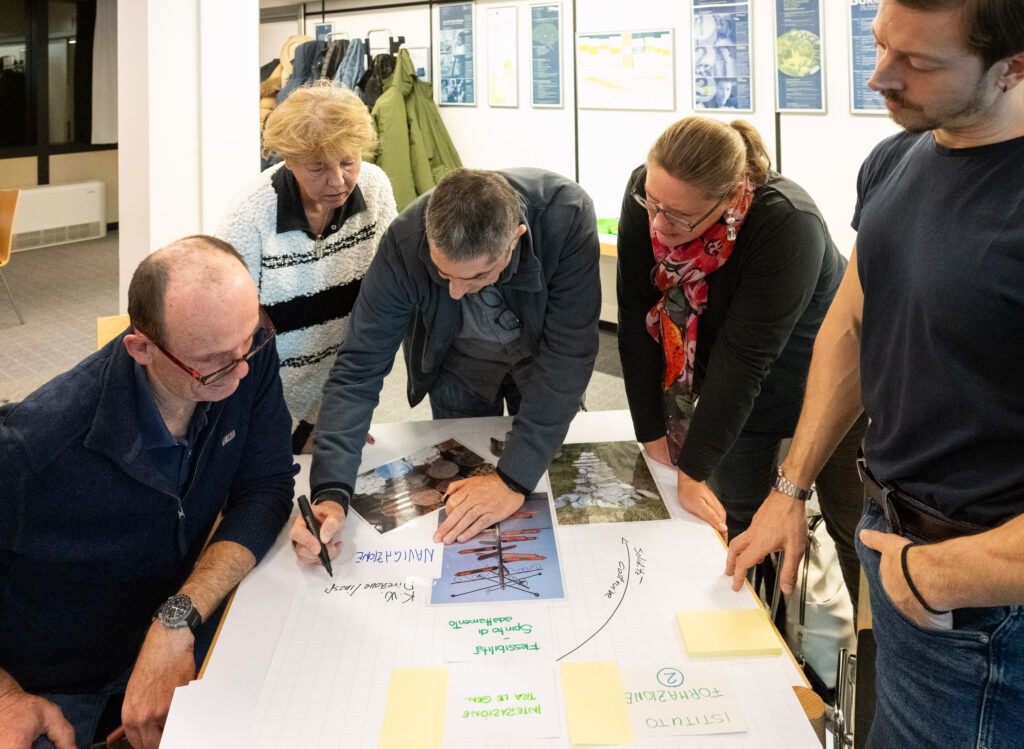
Part three: Presenting the results
In the last part of the workshop, the 5 groups presented the results of their discussions.
Taking the learners’ perspective, the importance of soft skills emerged, which the respective group considered to be the basic skills needed to get and keep a job in the future. Participants also expected training institutions to be able to provide (adaptable) opportunities to develop these skills. Given the need to constantly adapt to change, they also expected that adult education and training would become increasingly important.
Concerning the perspective of education providers, the participants emphasised the adaptability of training provision, which takes into account individual educational needs as well as the diversified training modalities. They expect education providers to pay attention to the different generations and to adapt to social change. They also assign education providers the task of ensuring that people can deal with new technologies and the huge amount of information. The workshop participants also emphasised that it will be necessary to create more links between the various training providers and the labour market.
Managing digital media was one of the main topics of the discussion for the groups looking at the issue from a labour market perspective. To improve communication and to make better use of synergies in Industry 4.0, from their point of view, employers need to know how to support their employees in developing skills such as stress management, resilience and, in general, emotional intelligence. Of course, constant updating on the integration and use of new technologies (for example artificial intelligence) is also desirable.
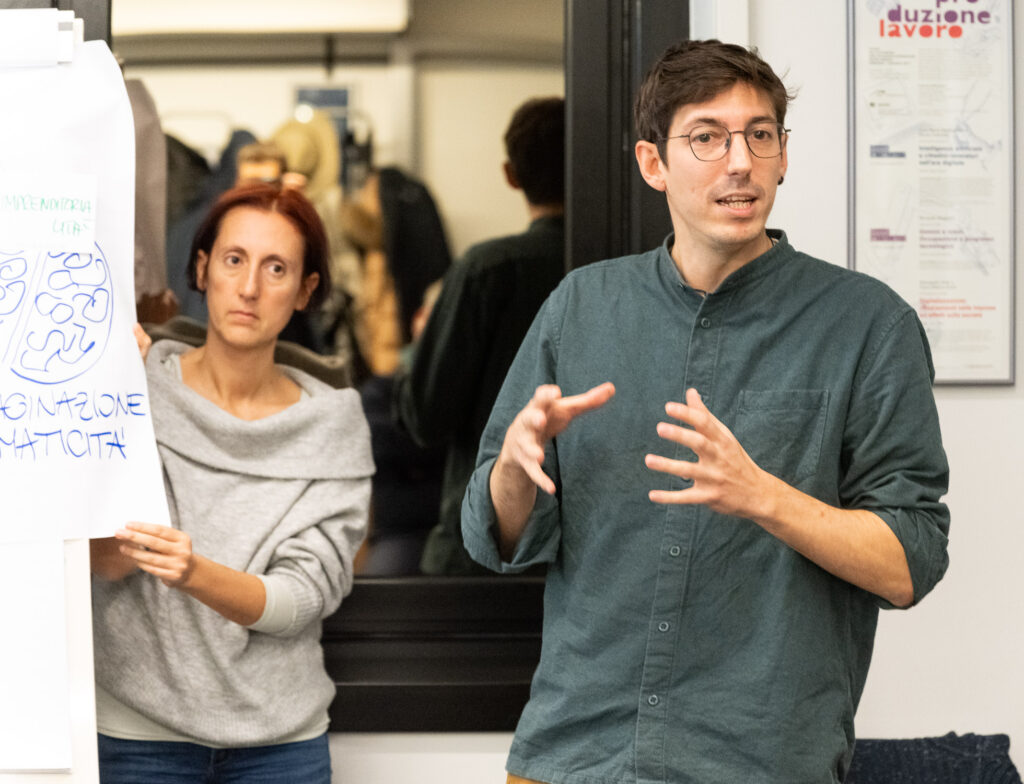
Final discussion
In the final discussion, participants expressed their appreciation for the opportunity to share their thoughts. After this introduction to the topic, they expressed a desire to explore further what had emerged. Specifically, they wished to have the opportunity to continue the exchange and collaboration and to work together on Future Skills. The discussion and interaction continued during the networking aperitif.
The TRANSIT team would like to thank all participants for a stimulating evening and looks forward to further exploring the topic of Future Skills.
